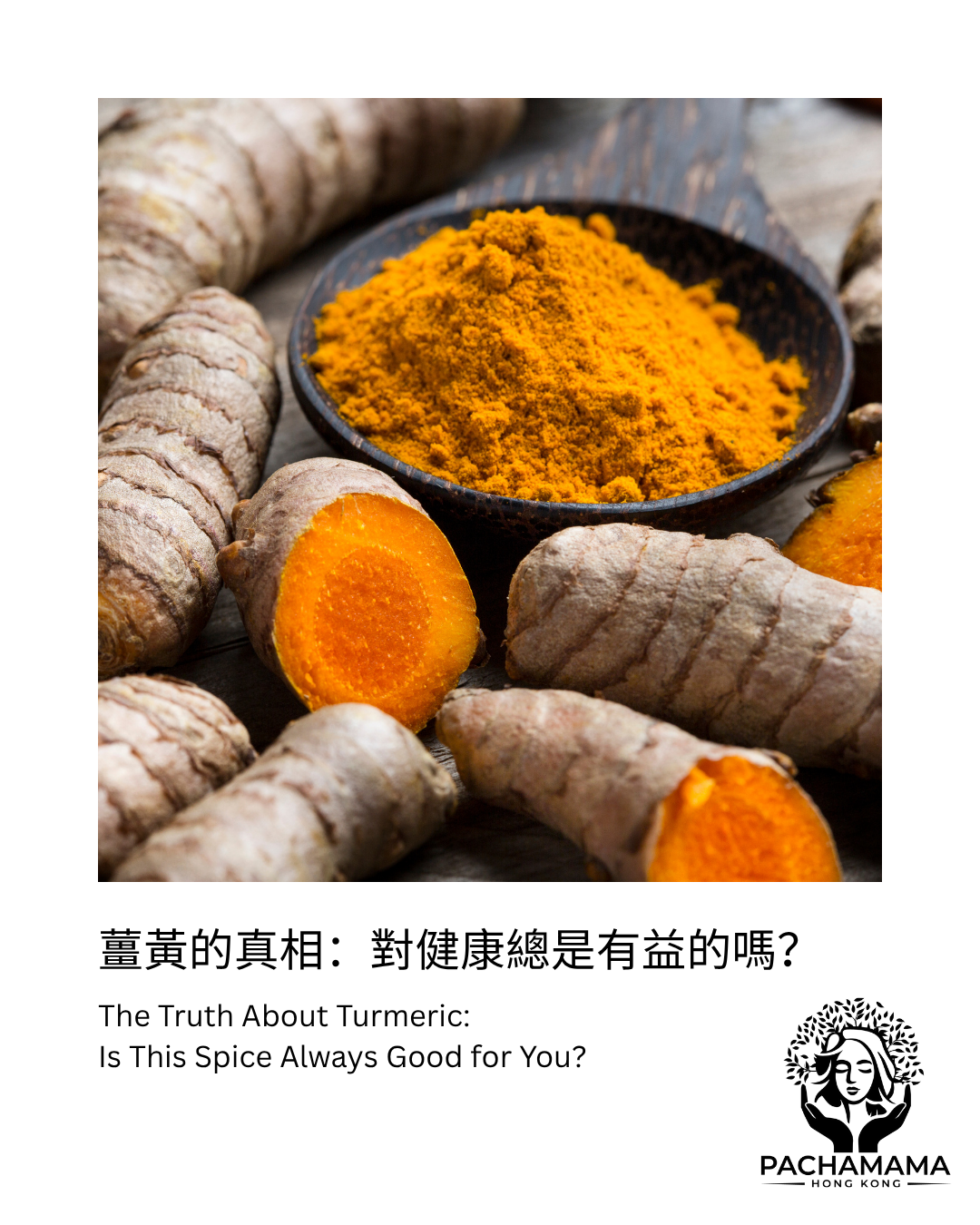Turmeric, often hailed as a superfood, has gained immense popularity for its purported health benefits. You see it everywhere – upplements, and even beauty products. It's true that turmeric contains curcumin, a compound with powerful anti-inflammatory and antioxidant properties. Theoretically, this sounds amazing for your health!However, when we dig a little deeper, the story isn't quite as straightforward.
While turmeric has a lot of potential, there are some reasons why it might not always deliver the health benefits you expect, and in some cases, it could even be problematic.
~The Absorption Problem~
One of the biggest challenges with turmeric, or more specifically, curcumin, is its poor bioavailability. This is a fancy way of saying that your body struggles to absorb and utilize it effectively. When you consume turmeric, a significant portion of the curcumin simply passes through your digestive system without being absorbed into your bloodstream. This means that even if you're eating a lot of turmeric, you might not be getting the full benefits of its active compounds.
Think of it like this: you have a beautiful, nutrient-rich meal, but if your body can't break down and absorb those nutrients, they don't do you much good. The same can be true for curcumin.
~The "Too Much of a Good Thing" Scenario~
While turmeric is generally safe for most people in culinary amounts, taking high doses of turmeric supplements can sometimes lead to unwanted side effects. These can include digestive issues like nausea, diarrhea, and stomach upset. For some individuals, especially those with certain pre-existing conditions, high doses might even interact with medications or exacerbate existing health problems.
For example, turmeric has blood-thinning properties, which could be a concern for people on anticoagulant medications or those with bleeding disorders. It can also affect iron absorption, which is something to consider if you're prone to iron deficiency.
~Quality and Purity Concerns~
The supplement market can be a bit of a wild west, and turmeric supplements are no exception. The quality and purity of these products can vary widely. Some supplements might contain fillers, artificial ingredients, or even contaminants. Others might not have the advertised amount of curcumin, making them less effective. It's important to be a discerning consumer and choose reputable brands if you do opt for supplements.
~The "Magic Bullet" Misconception~
Sometimes, people look to turmeric as a "magic bullet" to solve all their health problems. While it has beneficial properties, it's not a substitute for a balanced diet, regular exercise, and a healthy lifestyle. Relying solely on one spice or supplement to address complex health issues can lead to disappointment and may even delay seeking appropriate medical advice.
~Natural Alternatives for Anti-Inflammatory and Antioxidant Support~
So, if turmeric isn't always the miracle spice it's made out to be, what are some natural food alternatives that offer similar anti-inflammatory and antioxidant benefits? The good news is that nature provides a bounty of delicious and effective options!
1. Ginger
Ginger is a close cousin to turmeric and shares many of its anti-inflammatory properties. It contains gingerols, which are powerful compounds that can help reduce inflammation and pain. You can enjoy ginger in teas, stir-fries, smoothies, or even chew on a small piece for digestive relief.
2. Berries
Berries like blueberries, strawberries, raspberries, and blackberries are packed with antioxidants called anthocyanins. These compounds give berries their vibrant colors and are excellent at fighting oxidative stress and inflammation in the body. Add them to your breakfast, snacks, or desserts.
3. Leafy Green Vegetables
Spinach, kale, collard greens, and other leafy greens are nutritional powerhouses. They are rich in vitamins, minerals, and antioxidants like vitamin K, which plays a role in reducing inflammation. Incorporate them into salads, smoothies, or cooked dishes.
4. Fatty Fish
Salmon, mackerel, sardines, and other fatty fish are excellent sources of omega-3 fatty acids. These healthy fats are well-known for their potent anti-inflammatory effects and are crucial for brain and heart health. Aim for at least two servings of fatty fish per week.
5. Green Tea
Green tea is loaded with catechins, a type of antioxidant that has been extensively studied for its anti-inflammatory and disease-fighting properties. Enjoy a warm cup of green tea daily for a refreshing and beneficial boost.
6. Dark Chocolate
Good news for chocolate lovers! Dark chocolate (with a high cocoa content, typically 70% or more) is rich in flavonoids, which are powerful antioxidants. Enjoy it in moderation as a treat.
7. Garlic and Onions
These pungent ingredients are not just for flavor! Garlic and onions contain sulfur compounds that have anti-inflammatory and immune-boosting properties. Use them generously in your cooking.
~The Bottom Line~
While turmeric has its merits, it's important to approach its health claims with a balanced perspective. Focusing on a diverse diet rich in whole, unprocessed foods is always the best strategy for long-term health.

